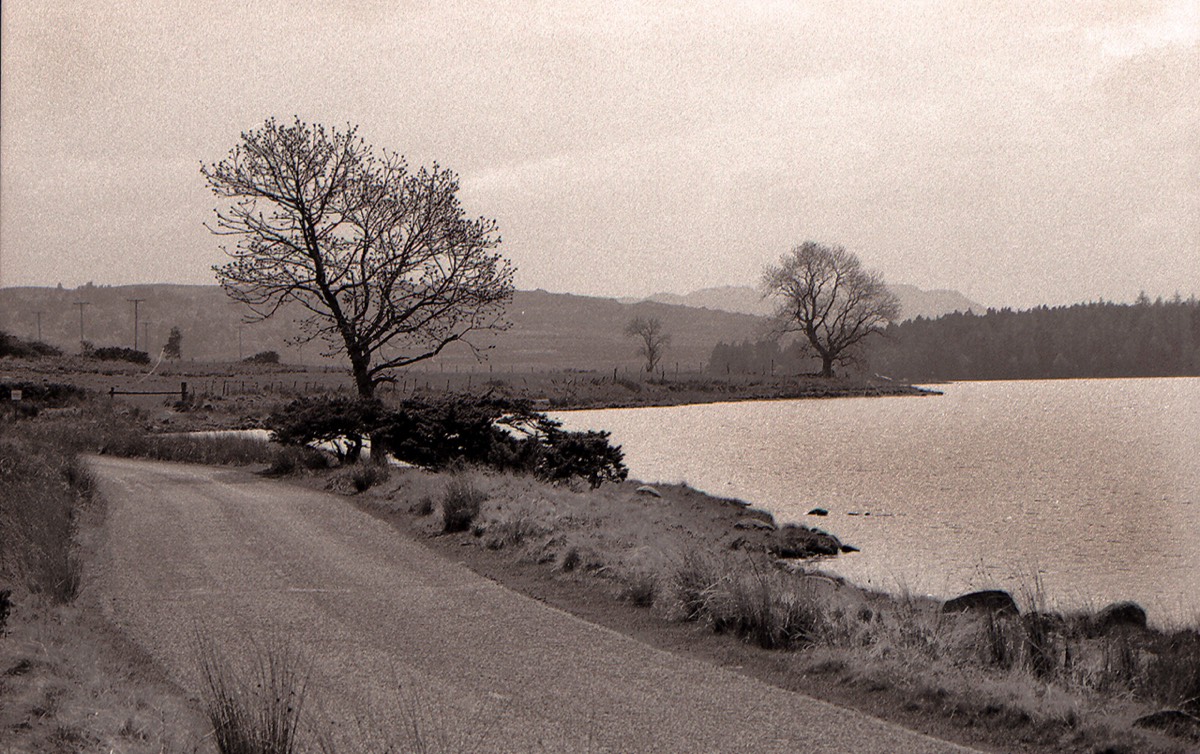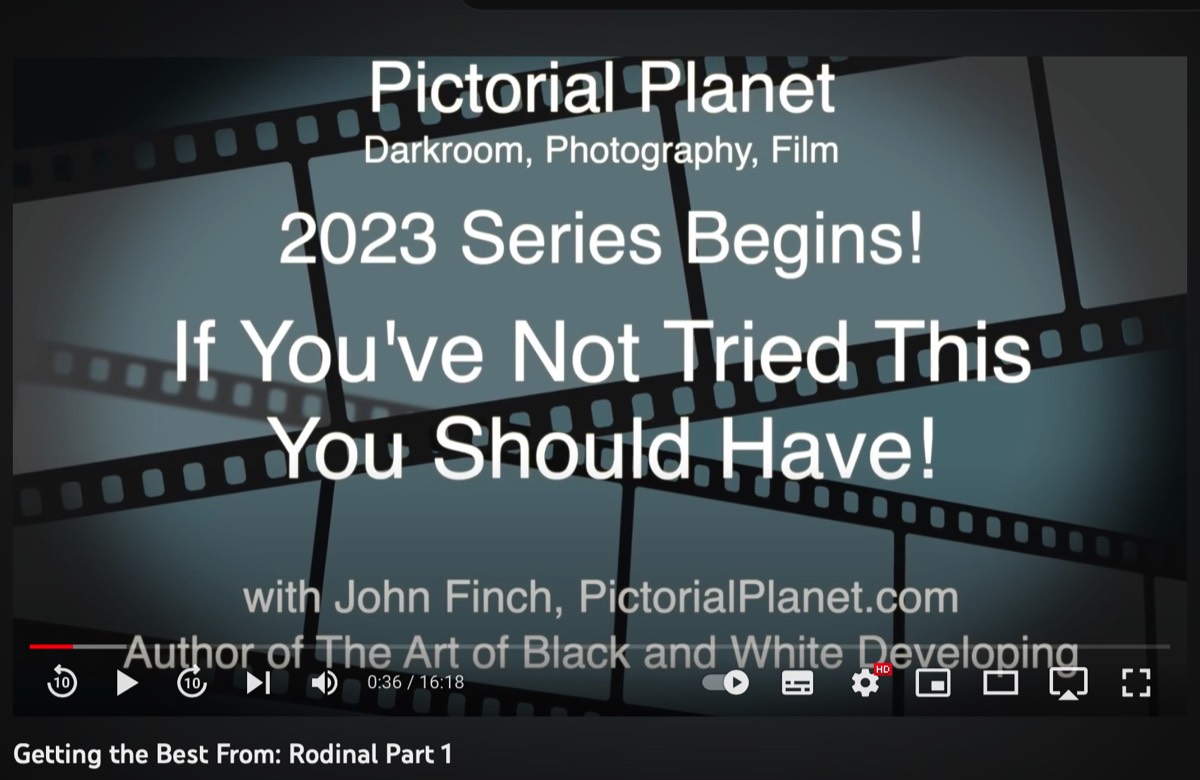Pictorial Planet
Please become a Patreon of my work. You get special videos just for Patreons. You also support my website and YouTube work. Just check out the two tiers and decide what you might want as value benefits. Just click the link below…
The illustrious Rodinal
Subscribe now to my new YouTube channel for tricks and tips on developers, darkroom work and photography.
Subscribe to our new newsletter!

P-Aminophenol (Rodinal like) Film Developer
Making Rodinal
EZ Rodinal formula by Pat Gainer.
This is very similar to the original Rodinal formula, just simplified by Gainer. It makes a very good Rodinal albeit with a loss in film speed.
Mixing the stock solution:
Water 24C 200ml
Sodium sulphite Anhyd. 42.5g
P-Aminophenol base 20g
Sodium hydroxide* 6.9g
Or
Potassium hydroxide* 9.6g
Additional hydroxide to add. See below.
* Warning.. Strong Alkali - read below for special mixing instructions
Mixing:
- To the 200ml water add and dissolve the sodium sulphite.
- In a well ventilated area (preferably outside) add the p-aminophenol. This will not dissolve.
- Slowly add the hydroxide, stirring, until it's all dissolved.
- If there are crystals of the p-aminophenol remaining add very small amounts of hydroxide until almost all the crystals have dissolved.
- Make up to 250ml with water.
- Bottle in HDPE.
Usage:
This versatile developer can be used in a variety of ways and adapts to very slow, fine grain films or to fast ISO 400 films. It develops modern tabular grain films very well too. Agitation is normally 10 seconds per minute but can be extended to 10 seconds every 2 or 3 minutes with slight increase in development time; this increases acutance. Bromide drag across your negatives is not a problem with this developer at the higher dilutions.
Film speed
The home made developer above is more like the original Rodinal than the present version sold. This means your will lose about 2/3 to 1 stop of film speed using this version. E.g. Ilford FP4+ 64EI to 80EI.
Stand development
For Stand Development dilute 1:100 or 1+200, develop for 1 hour. 1+200 can be developed for up to 2 hours and can give you a 1 stop speed increase!
Agitate for the first minute and leave to stand for the remainder of the time. Maintain 18-20C in a water bath. Do not move the tank or film during this time. Any film or film speed will do but try it on something unimportant first!
All timings 20C. Home made Rodinal can be 'hotter' than the modern version and so test for your development times as they will probably be quicker.
Here's some good generic times for starting points followed by some specific timings offered by Bob Schwalberg and Walter Johnson in Popular Photography December 1979:
Slow Films ISO 50 - Dilute 1:50 and develop for 10-12 minutes.
Medium speed Films ISO 125
Low Contrast Scenes (developer increases contrast) - 1:75 12-15 mins
Medium Contrast Scenes - 1:100 12-15 mins
High Contrast Scenes (developer lowers contrast) 1:100 8-12 mins
Fast Films ISO 400
Low Contrast Scenes (developer increases contrast) 1:50 12-15 mins
Medium Contrast 1:75 12 mins
High Contrast Scenes (developer lowers contrast) 1:100 12-15 mins
Schwalberg and Johnson - minutes at 20C - * = their favourites
FP4
1+50 7-9 minutes
1+75 8-11 minutes
1+100 10-13 minutes*
PanF
1+50 5-6 minutes
1+75 7-9 minutes
1+100 9-11 minutes*
HP5
1+50 9-11 minutes
1+75 13-15 minutes*
1+100 N/A
Note: These were the older film before the Ilford Plus range but still offer good starting points
As always test, test, test!

Gorgeous tones and clean working developer!
News stand, Lauderdale by the Sea
Rodinal 1:50 with Borax. 14mins @ 20c
Ilford FP4+

Straw Bales, Forres, Scotland
AGFA ( or ADOX) Rodinal and Rodinal like developers can even process high contrast films like Kodak Technical Pan. Here, the inherent contrast of Technical Pan has been tamed by AGFA Rodinal developer at 1:200 for 12 minutes. Agitation was once
every thirty seconds at 20C.
Click below to see the first Rodinal video in the series


